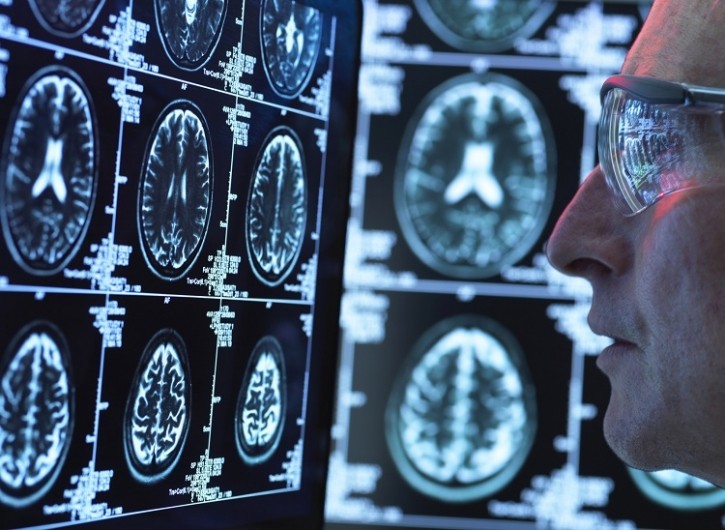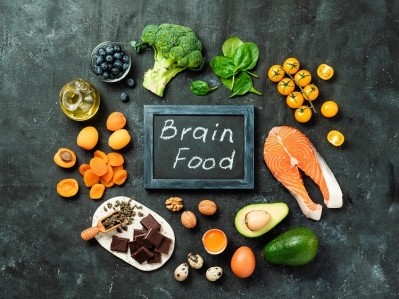Could keto diet delay early Alzheimer's?

Alzheimer's disease is a brain disorder, which slowly deteriorates memory and thinking skills, eventually leading to the inability to carry out basic tasks. There is currently no known cure for Alzheimer's however, research from the University of California, Davis has found that adopting a ketogenic diet, more commonly known as a keto diet, could potentially combat the early signs of the disease.
What is Alzheimer’s Disease
Alzheimer's disease is a brain disorder, which slowly deteriorates memory and thinking skills, eventually leading to the inability to carry out basic tasks. There is currently no known cure for Alzheimer's disease.
The exact cause of Alzheimer's disease is not yet fully understood, although a number of factors, including age, family history and untreated depression, are thought to increase your risk of developing the condition.
Ketogenic diet and Alzheimer’s
The study, published in the Nature Group journal Communications Biology, revealed that a ketogenic diet can significantly delay the early stages of Alzheimer’s-related memory loss in mice. This early memory loss is comparable to mild cognitive impairment in humans, which precedes the full effects of the disease.
The research team had previously found that mice lived 13% longer on ketogenic diets and conducted this study as their next stage of research.
The study found that the molecule beta-hydroxybutyrate, or BHB, plays a pivotal role in preventing early memory decline. This molecule increases almost sevenfold on the ketogenic diet.
“The data support the idea that the ketogenic diet in general, and BHB specifically, delays mild cognitive impairment and it may delay full-blown Alzheimer’s disease,” says Gino Cortopassi, a biochemist and pharmacologist at the University of California, Davis School of Veterinary Medicine.
However, Cortopassi is quick to point out that this is not a cure for Alzheimer’s.
“The data clearly don’t support the idea that this is eliminating Alzheimer’s disease entirely.”
What is a ketogenic diet?
The ketogenic diet, better known as the keto diet, is a low-carbohydrate, high fat and moderate protein diet, which shifts the body’s metabolism from using glucose as the main fuel source to burning fat and producing ketones for energy.
What are ketones?
Ketones are a type of chemical that the liver produces when it breaks down fats. The body uses ketones for energy during fasting, long periods of exercise or when it does not have access to carbohydrates.
Additional benefits of a ketogenic diet
Researchers also found that, in addition to preventing memory loss, the ketogenic diet mice benefited from significant increases in the biochemical pathways related to memory formation.
Additionally, the benefits were observed to be greater in females, and resulted in higher levels of beta-hydroxybutyrate in females.
“If these results translated to humans, that could be interesting since females, especially those bearing the ApoE4 gene variant, are at significantly higher risk for Alzheimer’s,” Cortopassi added.
The research team concluded by saying they are optimistic about the potential impact of these results on healthy aging and plans to delve further into the subject with future studies.
Health concerns linked to a ketogenic diet
The ketogenic diet has received some criticism in recent years following links to a range of health concerns including an increased risk of kidney stones, liver disease and micronutrient deficiencies. There are further long-term concerns relating to the impact of the high-fat levels, maintained in the ketogenic diet, on cardiovascular health.
How was the study conducted?
The research team gave the study mice a sufficient amount of the molecule beta-hydroxybutyrate, in order to simulate the benefits of being on a ketogenic diet over the course of seven months.
“We observed amazing abilities of beta-hydroxybutyrate to improve the function of synapses, small structures that connect all nerve cells in the brain. When nerve cells are better connected, the memory problems in mild cognitive impairment are improved,” explains Izumi Maezawa, professor of pathology in the University of California, Davis School of Medicine.
The team also highlighted that the molecule beta-hydroxybutyrate is also available as a supplement for humans should they wish to avoid adopting the ketogenic diet. Cortopassi added that the beta-hydroxybutyrate supplement could likely support memory in mice, but that has not yet been tested.
Source: Ketogenic diet and BHB rescue the fall of long-term potentiation in an Alzheimer’s mouse model and stimulates synaptic plasticity pathway enzymes
Published online: 16 February 2024
DOI: https://www.nature.com/articles/s42003-024-05860-z
Authors: Jacopo Di Lucente, Giuseppe Persico, Zeyu Zhou et al.




























